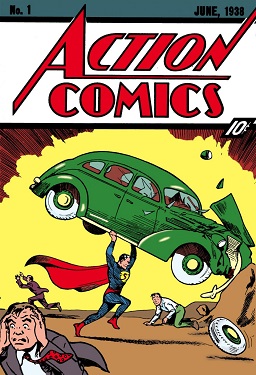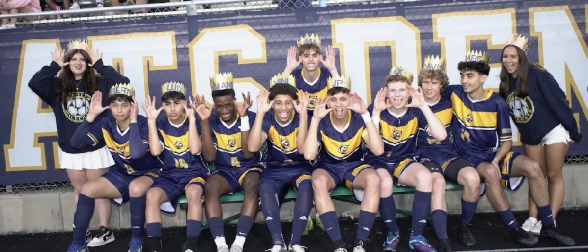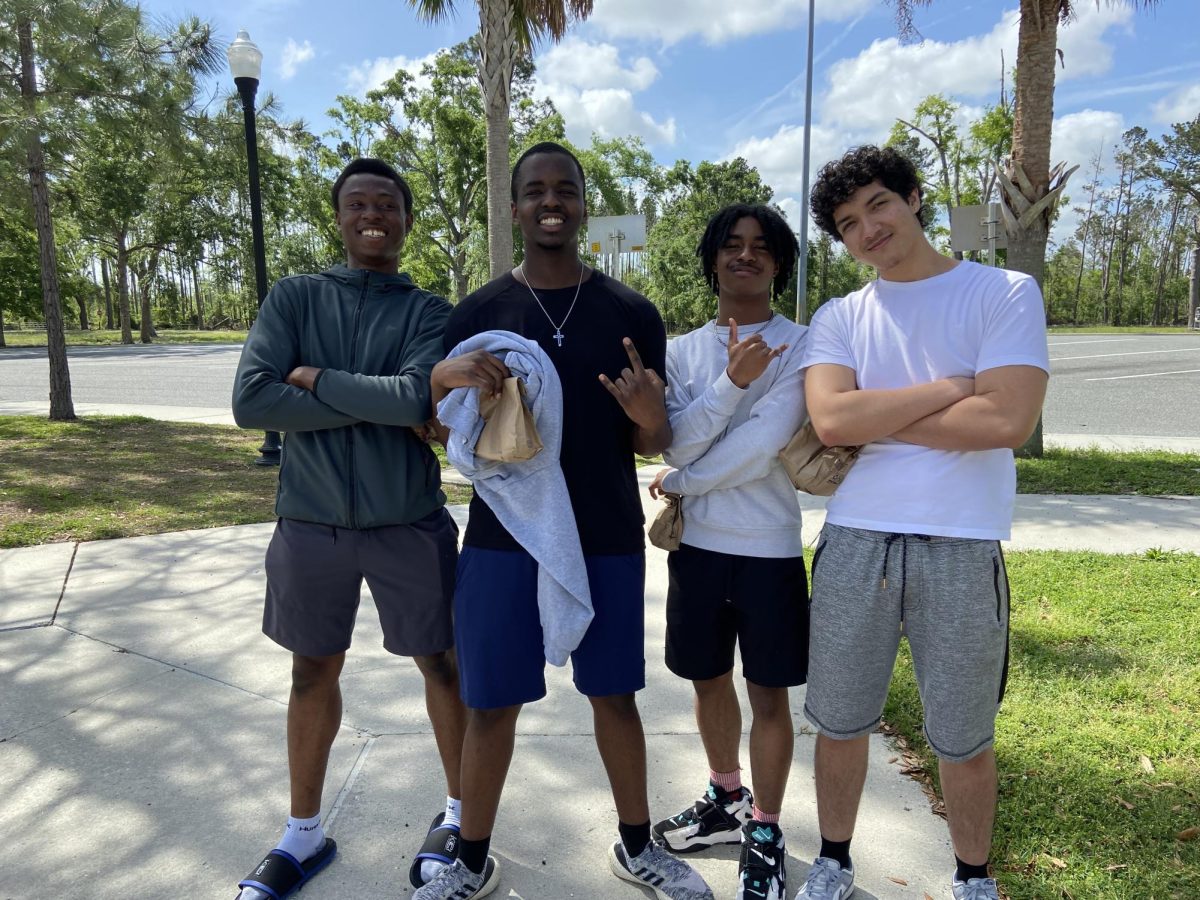The Man of Steel, the Man of Tomorrow, the Last Son of Krypton. Faster than a speeding bullet! More powerful than a locomotive! Able to leap tall buildings in a single bound! It’s a bird! It’s a plane! It’s Superman! Created by Jerry Siegel and Joe Shuster in 1938, Superman has been portrayed by over 65 actors and written by hundreds of writers across all mediums (as of 2025). Superman is, without a doubt, the greatest superhero ever created. He is more than just a cape—he is a symbol of hope, justice, and virtue, and he’s what we need more than ever.
Superman doesn’t just fight aliens from faraway planets, science experiments gone horribly wrong (or horribly right), he fights everyday villains, such as in Action Comics #1, where he saves an innocent woman from death row, fights a wife beater, and deals with a corrupt government official. The radio serial The Adventures of Superman created a 16-part episode story arc called “Clan of the Fiery Cross” (which would later be adapted into comic form under the title Superman Smashes the Klan). In the series, Superman fully exposed the KKK, its codewords, rituals, and racism. The serial permanently damaged the reputation of the Ku Klux Klan, leading to a steep decline in membership, which the KKK has (thankfully) never been able to recover from.
“Do good to others and every man can be a Superman.” — Superman’s final words, Superman #149, 1961, by writer Jerry Siegel.
The Categorical Imperative is the central philosophical concept in the moral philosophy of Immanuel Kant, which states that we should only act according to principles that we would want to become universal laws applicable to everyone. It emphasizes treating others as ends in themselves rather than as means to an end. Superman embodies this idea, exemplified through his commitment to his moral code, the famous principles of “truth, justice, and the American way.” He does not save people based on who they are or what they can do for him—it’s his moral duty, treating people as ends in themselves. These are values that he believes should be universally upheld. This is best seen in the comic What’s So Funny About Truth, Justice, and the American Way? (Action Comics #775, 2001), which centers around answering the question of why Superman and his moral values still matter in a more cynical and edgy comic industry.

In the comic, Superman is pitted against The Elite, a violent team of cynical anti-heroes who have no issue with killing people—believing that the ends justify the means. In the climax of the comic, Superman shows what would happen if everyone lived by the Elite’s philosophy by pretending to kill the team and temporarily “lobotomizing” the team’s leader, Manchester Black’s telekinetic powers, to show the consequences of a world without certain moral principles guiding us. By mirroring their violent methods, he forces the Elite, the public, and the reader to confront the brutality and fear such a world would create. The theme is explicitly stated in the final page of the comic, where Superman tells Manchester Black that “Dreams save us. Dreams lift us up and transform us. And on my soul, I swear… until my dream of a world where dignity, honor, and justice becomes the reality we all share… I’ll never stop fighting. Ever.”
“It Was Krypton That Made Me Superman, But It’s The Earth That Makes Me Human.” — The Man of Steel (Vol. 1) #6, by writer/penciler John Byrne.
In Superman: Red and Blue #5, Jon Kent goes to a preacher to ask him for advice. He tells him that he doesn’t know what to do or what to give his new son, Clark. The preacher tells him the story of Jesus’s Baptism: “There is a moment after Jesus emerges from the water where God addresses him from Heaven… ‘This is my son, whom I love. Who makes me proud.’ I think that if you make sure your boy knows that’s how you feel about him, the rest will fall into place.” The next few pages show Jon telling Clark, “You are special,” “I’m proud of you,” and “I love you.” Before showing Clark standing above Jon’s grave, he pulls off his suit to reveal the Superman suit beneath it. He flies off to save a woman from a burning building, spends time with terminally ill kids, and feeds the homeless, telling them the same things his father told him. Superman then flies far above the Earth, looking at it, and says, “I love you… I’m so proud of you.”
This illustrates that Superman’s real powers come not from his Kryptonian genetics, but instead from his humanity. The story doesn’t focus on Superman’s powers—his flight, his strength, his heat vision—but on why he uses them. When Jon Kent turns to the preacher for guidance on what he should give his son, the preacher tells him that what a child needs most is love. Jon takes that to heart and gives Clark his love, telling him, “You are special,” “I’m proud of you,” “I love you.” These words are the seeds, and the pages following Jon’s death show their fruits, as Clark carries that love forward. His heroic deeds—saving people from danger, comforting the sick, helping the needy—are driven not by a sense of duty tied to his alien heritage, but by the love he received as a human raised on Earth. That’s what makes him Superman.
Being a hero isn’t about having unbelievable powers. Superman is humanity at our best; he is what we are capable of. He’s represented in each one of us when we choose to do good and the right thing, despite it all. Anyone, regardless of their abilities, can be a hero if they act selflessly and help others.




